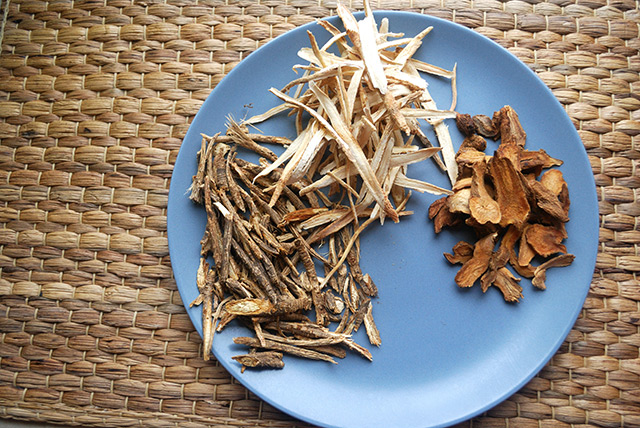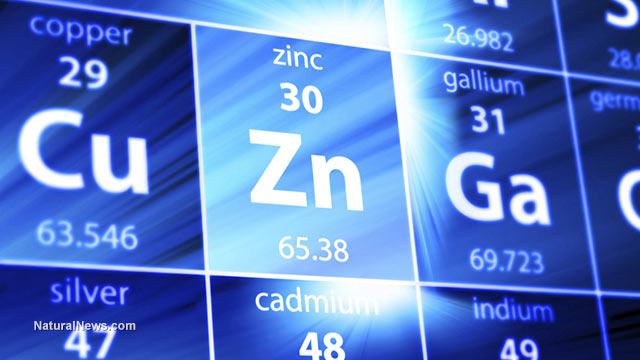It’s time to look at GABA and its amazing benefits
07/31/2019 / By Edsel Cook

GABA, which is short for gamma-aminobutyric acid, is an amino acid that the body naturally produces and a readily available dietary supplement. While not many people know about GABA, and it’s not as researched as melatonin, it is still essential in regulating blood pressure, mood, and sleep.
In its role as a neurotransmitter, GABA reduces the activity of neurons in the brain and central nervous system. This action, in turn, calms and relaxes people, reduces their stress levels, balances mood, relieves pain, and improves sleep. Both natural medicines and pharmaceutical drugs target GABA to amplify these beneficial effects.
GABA is present in green, black, and oolong teas, and in fermented foods. Other GABA-rich foods include beans, citrus, cocoa, fish, nuts, and whole grains. You can also take the amino acid as a health supplement. (Related: Brain development study: An imbalance between GABA and glutamate can contribute to behavior issues, autism, seizures.)
GABA helps people fall asleep faster and sleep sounder
The relaxing effect of GABA helps people fall asleep and keeps them sleeping all night soundly. Patients with sleep disturbance and insomnia often display low activity levels of the neurotransmitter.
A 2008 study by researchers from Harvard Medical School found that patients who have insomnia displayed GABA levels that were 30 percent lower than those found in healthy people. The participants with lower levels of activity also experienced more instances of restless and wakeful sleep.
Eating fermented food can increase GABA activity, which helps people fall asleep faster and sleep longer. Taking the amino acid alongside the health supplement 5-HTP can also achieve similar improvements in the length and quality of sleep.
Take GABA before or after a stressful mental activity to alleviate anxiety
The primary function of naturally produced GABA is to reduce the activity of nerve cells in the brain and the rest of the central nervous system. Since it places the body in a relaxed state, it helps relieve anxiety and stress, which in turn can contribute to better sleep.
GABA supplements can help with anxiety relief and serve as a relaxant. They can calm down brain activity in a short amount of time. Also, they boost the immune system of people who are experiencing severe mental stress.
Taking GABA supplements can quickly improve the mood of people who have just completed stressful mental activity. A 100 mg dose can alleviate psychological stress by slowing down their brain waves.
Alternatively, people can take the supplements before performing mentally stressful activities. Eating foods enriched with GABA can help people recover faster from the stress caused by the event. One of their benefits is improving the heart-rate variability that gets altered by stress.
GABA supplements offer a natural way to regulate blood pressure
Taking GABA supplements can naturally improve the blood pressure levels of people. The calming effect of the neurotransmitter can bring down high blood pressure to normal levels.
The blood pressure of the body goes down during the night as part of the preparation for sleep. If levels remain high throughout the night, it can take much longer to fall asleep and just as difficult to stay asleep.
GABA supplements can prevent this state of hyperarousal from taking place. It can improve sleep and prevent the onset of sleep disorders like sleep apnea, which contribute to the risk of high blood pressure and hypertension.
One way to get this particular health benefit is to take chlorella supplements. A type of green algae that contains high levels of GABA, chlorella can lower the blood pressure of patients with borderline high blood pressure.
Before supplementing with GABA, consult a trusted healthcare provider. Studies used doses of 10 to 20 mg for improving blood pressure and 100 to 200 mg for sleep, anxiety, and stress.
Sources include:
Tagged Under: alternative medicine, Amino Acids, anxiety relief, blood pressure, disease treatments, GABA, health supplements, heart health, immune system, insomnia, natural cures, natural medicine, neurotransmitters, prevention, remedies, sleep, stress relief
RECENT NEWS & ARTICLES
HeartDisease.News is a fact-based public education website published by Heart Disease News Features, LLC.
All content copyright © 2018 by Heart Disease News Features, LLC.
Contact Us with Tips or Corrections
All trademarks, registered trademarks and servicemarks mentioned on this site are the property of their respective owners.

















